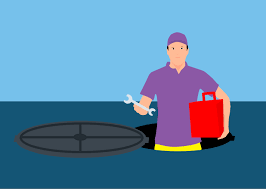Whether you’re dealing with a dripping faucet, a clogged drain, or a major plumbing emergency, hiring the right plumber is crucial to ensuring that the job is done correctly and efficiently. Plumbing problems can quickly escalate if not handled properly, leading to water damage, higher utility bills, and stress. Finding a trusted plumbing service can make all the difference in maintaining the health and safety of your home.
Here’s a comprehensive guide to help you navigate the process of hiring a reliable and professional plumbing service.
1. Start with Recommendations and Research
The first step to finding a trusted plumber is asking for recommendations. Start by reaching out to friends, family, or neighbors who have had plumbing work done recently. Personal referrals are often the most reliable way to find a trustworthy professional because you can get honest feedback about the plumber’s work, pricing, and customer service.
In addition to personal recommendations, you can also turn to online reviews. Websites like Google, Yelp, and local business directories offer a wealth of information and ratings from previous customers. Take the time to read both positive and negative reviews to get a balanced perspective.
2. Check for Licensing and Insurance
One of the most important things to check when hiring a plumber is whether they are licensed and insured. A valid plumbing license indicates that the professional has undergone the necessary training and meets the legal requirements to perform plumbing work in your area. This ensures that they have the technical knowledge and expertise to handle various plumbing issues.
Equally important is checking for insurance. A reputable plumber should have both liability insurance and worker’s compensation. This protects you in the event of any accidents or damage that may occur during the job. If a plumber is uninsured and an incident occurs, you could be held financially responsible for any injuries or damages.
3. Ask About Experience and Specializations
Not all plumbing jobs are the same. Some plumbers specialize in certain areas such as residential plumbing, commercial projects, or emergency repairs. It’s important to choose a plumber who has experience handling the specific issue you’re facing. Ask how long they’ve been in business and what types of projects they have successfully completed in the past.
For instance, if you need help with a complicated sewer line issue, it’s best to hire someone who has dealt with similar problems. Experienced plumbers are likely to work more efficiently and accurately, saving you time and money.
4. Get Multiple Quotes
Before making your final decision, it’s a good idea to get at least three quotes from different plumbing services. This allows you to compare prices, services offered, and timelines for completing the job. Keep in mind that the lowest price isn’t always the best choice. While it may be tempting to go with the cheapest option, you should weigh the cost against the quality of work and reputation of the plumber.
Ask for a detailed written estimate that includes the cost of materials, labor, and any potential additional charges. A transparent and itemized estimate shows that the plumber is honest and thorough in their approach.
5. Check for Warranties or Guarantees
A trusted plumbing service will stand by the quality of their work. Always ask if the plumber offers any kind of warranty or guarantee on their services and materials used. This can provide peace of mind knowing that if something goes wrong after the job is completed, the plumber will come back to fix the issue at no additional cost.
A warranty also indicates that the plumber has confidence in their work and is committed to customer satisfaction.
6. Evaluate Communication and Professionalism
Good communication is key to a successful working relationship with any service provider. Pay attention to how the plumber interacts with you during the consultation or when providing a quote. Are they clear, courteous, and responsive to your questions? Do they take the time to explain the problem and the proposed solution?
A professional plumber should be willing to address any concerns you may have and provide clear explanations about the work they will perform. Avoid plumbers who are vague or dismissive, as this may be a sign of poor customer service or lack of expertise.
7. Consider Availability and Response Time
Plumbing problems don’t always happen at convenient times, and some situations require immediate attention. When looking for a plumbing service, consider their availability and response time, especially if you need emergency services.
Some plumbing companies offer 24/7 emergency services, while others may have limited hours. Be sure to ask whether they charge extra for after-hours or weekend calls and how quickly they can respond in case of an urgent issue.
8. Check Their Track Record for Timeliness and Cleanliness
Another important factor to consider is the plumber’s reputation for timeliness and cleanliness. A professional plumber should arrive on time for appointments and complete the job within the agreed-upon timeframe. Delays and no-shows can be a major inconvenience, especially if the plumbing issue is disrupting your daily routine.
Additionally, plumbing work can be messy, but a reputable plumber will take steps to minimize disruption and clean up after the job is done. They should respect your home and leave it in the same condition as when they arrived.
9. Look for Local Knowledge and Experience
Hiring a local plumbing service can have its advantages. Local plumbers are familiar with the specific plumbing systems, codes, and regulations in your area. They may also have experience dealing with common issues that affect homes in your community, such as hard water, local pipe materials, or climate-related problems.
A local plumber is likely to be more invested in maintaining their reputation within the community, which often translates into better customer service.
10. Review Payment Terms and Schedule
Before any work begins, make sure you fully understand the payment terms. Some plumbers may require a deposit upfront, while others may bill you after the job is complete. Be cautious of plumbers who demand full payment before starting work, as this could be a red flag.
It’s also essential to clarify if the payment will be hourly or a fixed price for the project. Agreeing on the payment structure in advance helps avoid misunderstandings or disputes later on.



